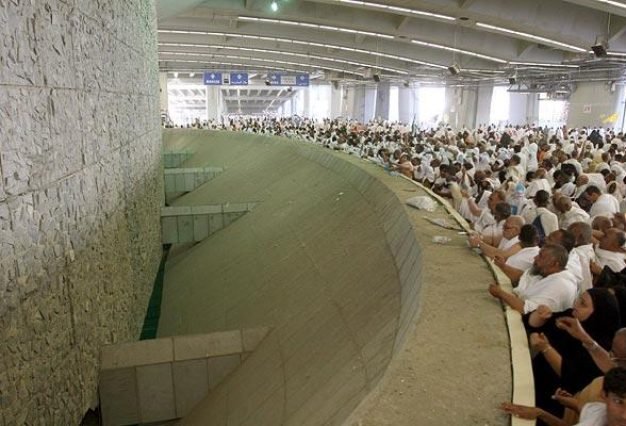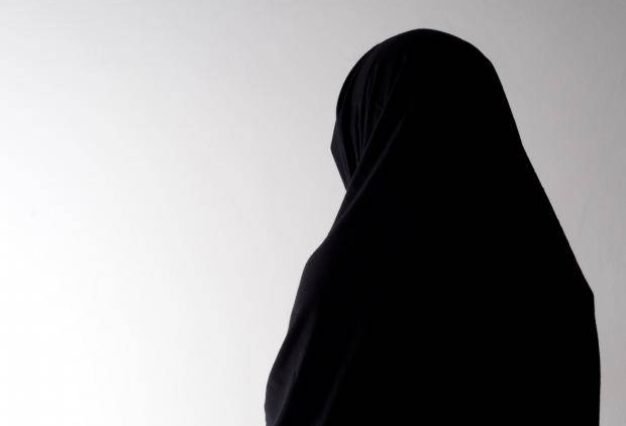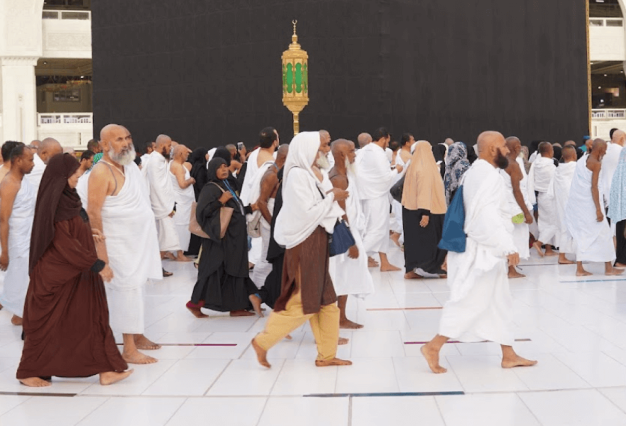Answered by Shaykh Yūsuf Badāt
Question:
During Ḥajj, on the 10th day of Dhū Al-Ḥijjah, are pilgrims required to conduct the 3 activities of pelting, ritual animal slaughter and the hair cut in a sequenced order or can we do them in any sequence we wish?
Answer:
In the Name of Allāh, The Most Kind, The Most Compassionate
Jazāk Allāh Khayr/ Thank you for your question.
The Prophet Muḥammad (peace and blessings upon him) conducted the activities on the 10th day of Dhū Al-Ḥijjah in the following sequence; pelting, animal sacrifice and then the shave.
“[During pilgrimage] The Prophet (peace and blessings upon him) came to Mina [after Muzdalifah] and pelted the jamarah (pillar that symbolizes the devil). Thereafter, he returned to his tent and conducted the ritual animal slaughter. He then said to the barber, “Shave my head, first from the right side then the left.” (Bukhārī, Muslim, Tirmidhī, Abū Dāwūd)
For this reason every effort should be made to follow the sequence of the Prophet Muḥammad (peace and blessings upon him). It should not be deliberately left out.
As for the ruling, the Ḥanafī Fiqh deems it wājib (necessary) to follow the sequence. If the sequence is not followed, a penalty of an animal sacrifice will become mandatory to compensate the mistake. This view is substantiated by the following:
-
The Prophet’s actions are a proof of the proper method of pilgrimage. He said, “Take from me your pilgrimage rituals.” (Ṣaḥīḥ Muslim, Musnad Aḥmad)
-
There is scholarly consensus that pelting must be done first with no difference of opinion. As for the sequence of animal slaughter and the hair cut, the following Qurʾānic verses are the basis, “So that they witness benefits for them [from pilgrimage] and recite Allāh’s name in specified days [of Ḥajj and Tashrīq], over the provision He gave them from the cattle [to be slaughtered]. So, eat thereof and feed the distressed, the poor. Thereafter, they must remove their dirt [by having a hair cut and removing the iḥrām] and fulfill their vows, and make ṭawāf [ifādhah] of the Ancient House.” (Qurʾān 22:28-29) – (Also see: Tafsīr Ibn Jarīr, Aḥkām Al-Qurʾān Li Al-Rāzī, Iʾilā Al-Sunan, Badāʿi, Al-Mawsūʾah Al-Fiqhīyyah)
-
“Do not shave your heads until the sacrificial animal has reached its place of slaughter.” (Qurʾān 2:196) also indicates the shaving must take place only after the slaughter.
-
The prophetic narrations (ḥadīths and āthār) that elaborate the activities of the 10th day have the words “fa” and “thumma” which denote ‘sequence’ from an Arabic linguistic and grammar perspective.
-
The statement of the Prophet (peace and blessings upon him) where he said, “There is no objection.” to those who forgetfully or unknowingly missed the sequence means “There is no sin.” (See: Iʾilā Al-Sunan, Fatḥ Al-Bārī)
-
ʿAbd Allāh Ibn Abbās (may Allāh be pleased with him) said, “The one who preceded or delayed any action of Ḥajj should slaughter an animal as penalty.” (Al-Jawhar Al-Naqīʾ, Ibn Abī Shaybah, Ṭaḥāwī)
Another group of jurists from the Shāfʿīe, Mālikī and Ḥanbalī schools along with the two students of Imam Abū Ḥanīfah (may Allāh’s mercy be with them) are of the view that the sequence is a prophetic practice (sunnah) and meritorious, however if it is left out regardless of it being deliberate or due to forgetfulness, there is no penalty. (Al-Mughnī, Al-Fiqh-Al-Islāmī Wa Adillatuh, Al-Mawsūʾah Al-Fiqhīyyah)
“Whatever was asked to the Messenger of Allāh (peace and blessings upon him) on that day regarding preceding or delaying anything in Ḥajj, he said do [it] and there is no objection.” (Bukhārī)
Some scholars, such as Saʿīd bin Jubayr, Jābir bin Zayd, Qatādah and Nakhaʿī state that there is a penalty of an animal sacrifice if the sequence was deliberately left out in contrast to one leaving the sequence due to forgetfulness and or ignorance. (Al-Mughnī)
In any case, imitating the Prophet Muḥammad (peace and blessings upon him) in the sequence during a once in a lifetime journey is worthwhile and also highly encouraged.
And Allāh Knows Best




